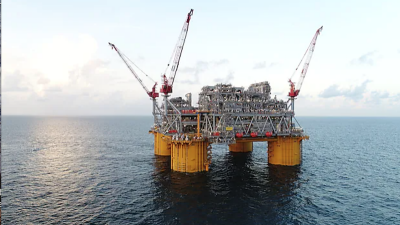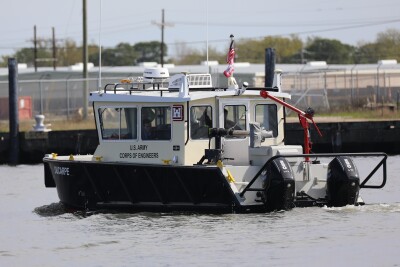IHS Energy — Petrodata MarineBase analyst Richard Sanchez and I were talking about the oil and gas industry over the phone recently. After thinking more about the conversation, I sent him some questions in an email. My questions and his responses follow:
WorkBoat: What numbers are you getting for [offshore supply vessels] under construction or recently delivered in the U.S. (past 12 months and going forward). WorkBoat’s Annual Construction Survey numbers have 51, but there are several owners who won’t share their numbers with us. Have you heard of contracts being ignored?
Richard Sanchez: What do you mean contracts being ignored? Do you mean PSV term charters? I’ve certainly heard about negotiating rate reductions on what were reported to be firm contracts. Since the 2010 drilling moratorium…many U.S. operators have created OSV contracts with escape clauses (meaning they can release the vessel whenever they stop needing it). IHS Petrodata MarineBase counts 23 PSVs delivered in 2015 and three more PSVs delivered up to February 2016, and 22 more PSVs under construction/on order at U.S. shipyards. My total since January 2015 comes to 49; however, I could be missing vessels. I recently discovered two newbuild 220 ft. PSVs, which had escaped our attention; and are expected to deliver in April and August of this year. I have seen very few shipyard cancelations in the U.S., but many in Brazil where shipyards have gone under.
WorkBoat: What did you say about the price of oil rising only to be knocked back down by onshore production?
Sanchez: As oil prices start to rise above $50/barrel, it becomes more attractive to the more efficient onshore producers; at $60/barrel even more onshore producers join in. As it continues to rise, less efficient onshore producers will rejoin the market increasing production. In past oil price down cycles, the recovery in oil price was sharp and fast, because we did not have a mechanism for bringing oil production online quickly. In the not-so-distant past, new oil production was coming from offshore fields which take many years to explore and develop before you get to first oil production. Today, onshore producers can explore, develop and return investment much more quickly. And I understand there is plenty of onshore activity, which has stopped short of producing for financial reasons.
WorkBoat: Is there a definite shift in the industry or would things be back to $100 bbl. oil if current storage were depleted?
Sanchez: I think there has been a major shift in the oil industry. I don’t think we’ll get back to a sustained price of $100 bbl. if or when current storage is depleted. Before fracking proved itself to be a profitable source of new oil production, oil company executives were complaining that there were not a lot of new large reserves (offshore) available to them (IOCs) because National oil companies like Petrobras and Pemex were keeping it for themselves. The rise of profitable onshore oil production has been (I hate to use the phrase) a real game changer. It has unlocked reserves onshore which were not commercially viable with traditional drilling methods. The quickness to market of onshore unconventionals has introduced greater volatility to the oil markets. The offshore industry requires high capital costs and long lead times to bring oil to market, that requires long term confidence from the investment community. Some in the offshore service industry are seriously concerned that when the oil price recovers, those investment dollars might favor onshore versus offshore. We are entering undiscovered territory, and conventional wisdom might not hold true.
WorkBoat: Is there anything about this downturn that is good for the industry — consolidation/greater efficiency?
Sanchez: By not adjusting OPEC production to ameliorate low oil prices, the Saudis have essentially forced the global oil industry to become much more efficient and it has curtailed investment in the most expensive sources of oil. While we’ve had long standing assumptions about who are the most/least efficient oil producing sectors, this downturn is a crucible that will eliminate the weakest and least efficient. I also recall an oil company executive at a recent conference assert that low oil prices stimulate and encourage technological innovation.




